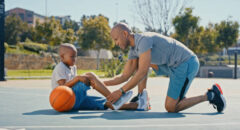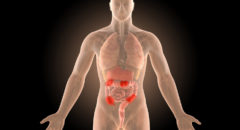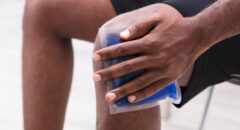
While we often think of arthritis as something that affects the elderly and injured, there’s actually something called juvenile arthritis that afflicts children younger than 16.
Because arthritis is not commonly associated with kids, it’s important to know the signs of this juvenile condition.
For that reason, let’s get right into an exhaustive list of 20 symptoms you should be looking out for…
1. Recurring Joint Pain
This one’s obvious. Arthritis triggers joint pain, so if your young one constantly has aching joints, especially upon waking up, it might be time to see a doctor.
2. Swelling
Is the swelling visible? Does it occur in the knees, ankles, and wrists? If it’s persistent, juvenile arthritis may be to blame.
3. Stiffness
Little kids normally don’t have morning stiffness, especially if it lasts for hours. So, if your child is complaining of this, it’s time to see the doctor.
4. Limping
No injury, but your son or daughter is still limping? Could be joint pain or stiffness – which may indicate juvenile arthritis.
RELATED: Does Your Child Have Juvenile Idiopathic Arthritis?
5. Frail Muscles
Are the affected joints weak? Is your kid losing strength and struggling with walking, moving, getting up and active? This may be a sign.
6. Range of Motion
One common sign is an inability to move limbs fully. If your child struggles with this but has no other conditions to explain it, consider arthritis.
7. Fatigue
Does your son or daughter constantly seem drained, worn down, and unwilling to do activities he or she normally liked? It could be due to inflammation from juvenile arthritis.
8. Fever
Is your child dealing with persistent fevers without a known infection? While strange, this could indicate juvenile arthritis.
RELATED: The Most Common Arthritis Symptoms You Should Know
9. Rash
Light pink rashes often occur on the arms and legs in kids with juvenile arthritis – so be on the lookout! Especially if joint pain and fever are present.
10. Weight Loss
Weight loss without obvious diet or activity changes is not unheard of in children with juvenile arthritis.
11. Delayed Growth
Because arthritis affects the joints and surrounding body structure, growth delays are not uncommon. So if your pediatrician says your child is missing developmental milestones, it may be from arthritis!
12. Vision Problems
Because arthritis causes inflammation, it may really impact children by making their eyes painful, red, and sensitive to light. Blurriness is common too.
13. Difficulty Sleeping
Who can sleep with persistent pain and discomfort? If your child can’t fall asleep or wakes up repeatedly, consider the other symptoms of juvenile arthritis.
14. Decreased Appetite
Digestion takes a lot of energy, and because arthritis causes inflammation and uses energy, your child may lose his or her appetite. Noticing appetite changes that you can’t explain? Consider JA.
15. Irritability
We all get cranky when we’re in pain and not feeling good. If your child’s mood is unstable or constantly ‘down,’ ask about other contributing issues.
16. Constant Illness
Due to a suppressed immune system, kids with juvenile arthritis are more susceptible to infections and illness. This may be one reason affected children are frequently sick.
17. Inactivity
This one is obvious. If your child is in constant pain and discomfort, they may be afraid/unable to engage in activities and sports.
18. Fine Motor Skills
Due to pain and discomfort, children with juvenile arthritis may struggle to write, type, hold objects, and perform other fine motor tasks. Pay close attention to see if these challenges persist.
19. Post-Activity Pain
Does your child complain of joint pain following exercise or basic play? It could be from arthritis if another injury or condition does not already exist.
20. Emotions
Children, especially small children, will express themselves differently than adults. If the pain, discomfort, and sickness from juvenile arthritis persist, your kid will likely show it through negative emotions. Look for outbursts, crying, loneliness, and withdrawal from normal life.
While symptoms like these do not necessarily indicate juvenile arthritis, a cluster of them might. As always, consult with your doctor.
Many tests, like medical histories, X-rays and MRIs, lab tests, bone scans, and more can help get your kid the proper diagnosis they deserve! If your child is diagnosed with juvenile arthritis, you can rest assured that a team of healthcare professionals can help.
Rheumatologists, pediatricians, and other specialists can all work together to get your beloved child the best treatments possible!








